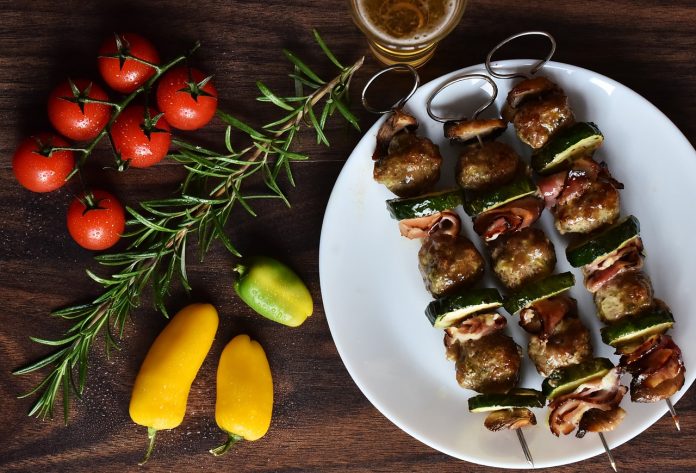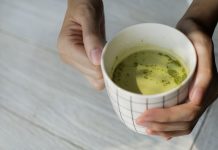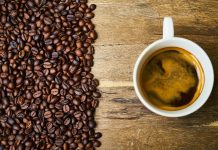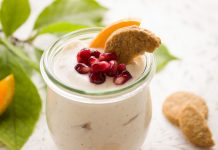
Just a couple o’ comments (questions/answers) regarding the subject of the possible effects of caffeine on gout and sports physiology.
I found a HUGE Website on coffee (etc.) which included chemistry etc. of caffeine. Correct me if I’m mistaken in my interpretation of their information: specifically, that caffeine is a purine that is normally metabolized to uric acid. Therefore I’d imagine that gouty people should certainly limit their intake of it (as well as beverages containing related chemical stimulants, tea with theophylline and chocolate with theobromine), though I’ve never found any recommendation of that (not even in your dietary restrictions for gouty people).
Next, regarding enhancement of sports or exercise physiology, true that it enhances burning of fat, but my experience has been that the overstimulation (say from a cup o’ coffee or worse still from a power-drink, like Black Booster, consumed about 30 min before exercise) is likely to cause more injuries from “Superman” (or “Superwoman”) effect. You feel you can push much more than what you would normally (ought to be) training with!!
By the way, thanks for the WONDERFUL contribution you are making to global fitness and health. It still doesn’t cease to amaze me how MUCH valuable information one can fetch at the flick o’ a switch. One almost doesn’t need a doctor for diagnosis of common minor or major ailments. Best regards!
Caffeine belongs to a group of chemicals called xanthines which include theophylline (used in the treatment of lung diseases like emphysema and asthma) and theobromine (found in chocolate). Xanthines stimulate the nervous system and can cause people to feel restless, nervous or unable to fall asleep. Xanthines belong to a chemical group called deoxypurine which is where the impression that coffee is not allowed by people with gout. The quantity of xanthines in caffeine is very low (less than 15 milligrams per 3 1/2 ounces) compared to the purine contribution by some proteins. So while xanthine from caffeinated beverages may contribute to uric acid production, its contribution is very small. Caffeine (more than 4 cups a day) has been found to lower uric acid levels whereas tea has no effect on uric acid levels. So it must be something other than caffeine in coffee that is having an effect on uric acid levels. Caffeine is excreted in urine as methyl xanthine and methyluric acid as a product of metabolizing caffeine. Methyluric acid can trigger gout in rare cases, but not in most persons with gout.
Uric acid which causes painful gout is a by-product of purine metabolism which occurs in the liver. In persons with gout, an excess amount of purines is produced and the end product which is uric acid crystallizes in joints which cause painful arthritic symptoms. Meals high in protein seems to accelerate this process, therefore, foods high in protein and organ meats where purines are metabolized are limited in gout nutrition therapy. Caffeine-containing beverages are not limited to gout nutrition therapy for persons who need to limit purines. The main treatment is drug therapy.
FYI, beverages containing caffeine have been found useful in the treatment of attention deficit disorder and hyperactivity, which work, in tandem with stimulant drugs like Ritalin. They are absorbed within 30 – 60 minutes after drinking and half the effect lasts for 5 hours afterward (10 hours total). On the other hand, caffeine passes into breast milk and becomes a stimulant for a nursing infant. Half the effects of caffeine can last 30 to 210 hours in infants up to 6 months of age. Daily caffeine consumption reduces insulin sensitivity and the effect lasts for 12 hours after consumption of caffeine.
With regards to caffeine use prior to exercise, please read my sports nutrition topic and search for caffeine. New research has not shown that caffeine increases fat burning or spares glucose, but instead may reduce fatigue due to central nervous system stimulation. Caffeine is not prohibited by the World Anti-Doping Agency (founded by the International Olympic Committee) that monitors drugs in athletes.
P.S. Medical doctors are the only health professionals that can diagnose a minor or major ailment. The Internet is a good place to search for health information. Just make sure that the person providing information has credentials to support the type of information being given.



